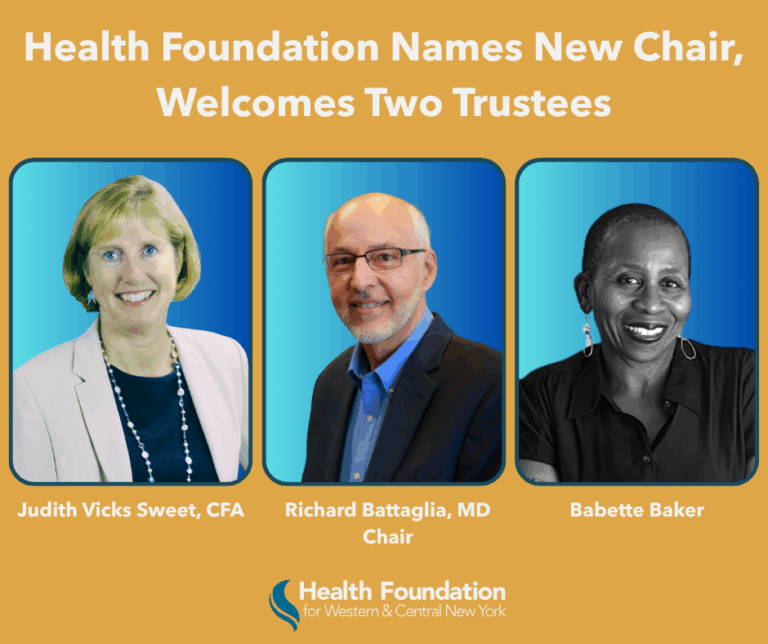Community health centers fill gaps and find solutions for rural health disparities
This post is part of our Transform Rural Health campaign. Learn more, including how you can let your elected officials know that rural communities deserve the best opportunities for good health.
In rural areas, getting to your primary care doctor can be hard. Seeing a medical specialist can be even harder. Federally Qualified Health Centers like The Chautauqua Center (TCC) are working to address those issues.
“The purpose of community health centers is to take all patients, regardless of income, but there are a lot of misconceptions about what we do,” said Michael Pease, Executive Director of TCC. “The whole point of FQHCs is to deliver health care in ways that are innovative and efficient. We’re doing things that address a lot of the social determinants of health.”
The data shows that continuity of care—seeing the same providers long-term—leads to better health outcomes. Patients can come to community health centers like TCC for services that are consistent, thorough, and focused on the whole person.
Still, the communities served by TCC continue to face serious health challenges because of overarching systemic issues.
“I see a lot of poverty in the patients I serve. I have patients that would not be dying of their diabetes if they didn’t live in poverty, and that’s unconscionable,” said Matthew Rivera, MD, a physician with TCC. “They lack the social supports they need. These patients deserve to receive quality health care, but these significant issues like transportation mean they can’t always access it.”
James Wild, MD, is a physician who has been caring for people in Gowanda and the surrounding communities for 37 years. Affiliating his practice with TCC gives him peace of mind for future patients.
“There were more doctors working in Gowanda when I first started than there are now. This is a significant shortage area,” said Dr. Wild. “Being part of TCC helps ensure there will continue to be a presence here, serving our patients.”
Dr. Wild agrees that social determinants of health are a major factor for the people he serves.
“Transportation, technology, housing, and food access—these are some of the big issues I see,” he said. “You can ask your patient to eat more fruits and vegetables, but what happens when they tell you they can’t afford to eat any healthier than they are now?”
The costs of medical care—for both patients and providers—are another significant challenge.
“Many people here are uninsured or underinsured,” Dr. Wild said. “They can’t afford their co-pays. Lowering the threshold for who can receive benefits may help.”
“Everyone at TCC is really mission-driven,” said Michael. “But we can’t afford to compete with the big health systems that can pay more. Reimbursements at their current level don’t cover our costs. If those rates were improved, we could re-invest that money back into our programs and people.”
“People pay lip service to rural areas, but they don’t build policies that support that,” said Dr. Rivera. “The pandemic was a time when our elected officials said they were committed to protecting public health. Now that we are coming out of the pandemic, I hope we continue to protect public health by addressing these other big issues.”
While Dr. Wild says he continues to see the same rural health issues he witnessed as a new doctor 37 years ago, he still believes positive change can happen.
“It doesn’t mean there’s nothing that can be done or that we should lose hope. We have the ability to make changes that help people.”



